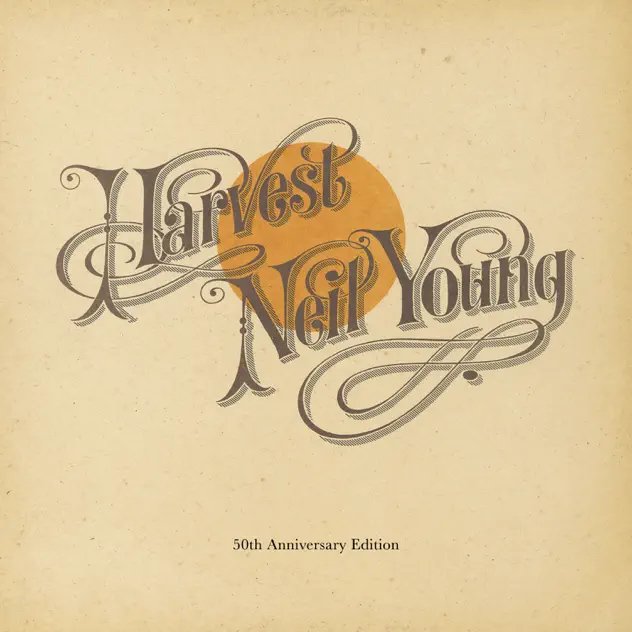by Jon Shina (@___flower___sounds___)
If you step back and think about it, Neil Young is kind of an anomaly. Although his voice is original, it’s not objectively a great voice. His guitar playing isn’t anything extraordinary, he’s never graced the cover of any guitar mags. Lastly (and not trying to be mean here), he’s objectively not a conventionally beautiful looking man. Yet, despite on paper what amounts to nothing really special, Neil Young has a mythic status and is regarded as one of the greatest artists of the past fifty years. It’s Neil Young's songwriting and overall vibe that generations of fans have fallen in love with.
Debuting in 1972, a year after the infamous 1971 year in music (check out the Apple TV documentary), Harvest was this country’s number one selling album of that year, and has remained Neil Young’s signature and most referenced album. It came off the heels of the first hiatus of Crosby, Stills, Nash, and Young, with the success of Harvest coming as a surprise to Neil himself, who did not personally set out to hit a grand slam out of the park during the conception of the album.
In the beginning of 1971, Young was invited down to Nashville to perform on The Johnny Cash Show. While in Nashville, legendary producer Eliot Mazer invited Young for breakfast, where he proceeded to convince Young to record his next record at his new “Quadraphonic Sound Studio.” Mazer, who at this point had already collaborated with acts such as Linda Ronstadt and fellow Canadian Gordan Lighfoot, was an easy sell for Young, and the two began working on the album that evening. Because everything was moving so fast, Mazer quickly grabbed any nearby musicians he could find, including bassist Tim Drummond who was apparently just walking down the street minding his own business when Mazer coerced him inside to create music history. Young was impressed by the studio musicians on premises, and stuck to a stripped down guitar, bass, drum Country Rock sound. During these sessions, it is alleged that after appearing on a seperate Johnny Cash Show, Linda Ronstadt and James Taylor were both invited into the studio by Young to sing backup vocals on “Old Man” and “Heart of Gold.” Taylor also has an uncredited banjo performance on “Old Man” as well. Right off the bat, Harvest, and the occurrences around it, were already aligning into music legend.
An outlier song on the album “The Needle and the Damage Done” (which would have a resurrection after the passing of Kurt Cobain in the mid 90’s) was recorded live earlier that year before the Mazer sessions even happened, and is the only live track on the album. Also of note, both “A Man Needs a Maid” and “There’s a World” were both recorded with the London Symphony Orchestra.
One of the most famous musical confrontations, and possibly the first of the hip-hop beefs, is the story behind the song “Alabama.” Young had already released the song “Southern Man” on his previous album, After the Gold Rush, a scathing criticism on the racism in the south personified by a single white man and his treatment of his slaves. For the song “Alabama,” Young singles out the entire state for its horrific historical acts. This caught the attention of southerners Lynyrd Skynyrd, who singled out Young in their lyrics for “Sweet Home Alabama,” singing:
Well, I heard Mister Young sing about her
Well, I heard ol' Neil put her down
Well, I hope Neil Young will remember
A Southern man don't need him around anyhow
Supposedly there was never any real animosity between the artists, with Ronnie Van Zant of Skynyrd being quoted as a great admirer of Neil Young, and Young himself has performed “Sweet Home Alabama” live at his own shows.
Harvest still remains very relevant today. You can hear its influences in one of the best albums of 2022, Big Thief’s Dragon New Warm Mountain I Believe in You, with songs like “Red Moon” and “Dried Roses” almost sounding like Neil Young covers. If you hear a Neil Young song on the radio (because Neil Young is not on Spotify), chances are they will be playing one of his songs off Harvest. The record remains an album that all generations of fans love, and it will stick around like the Dylan or James Brown within the fabric of North American Music (I mean, we gotta throw Canada in there too).

